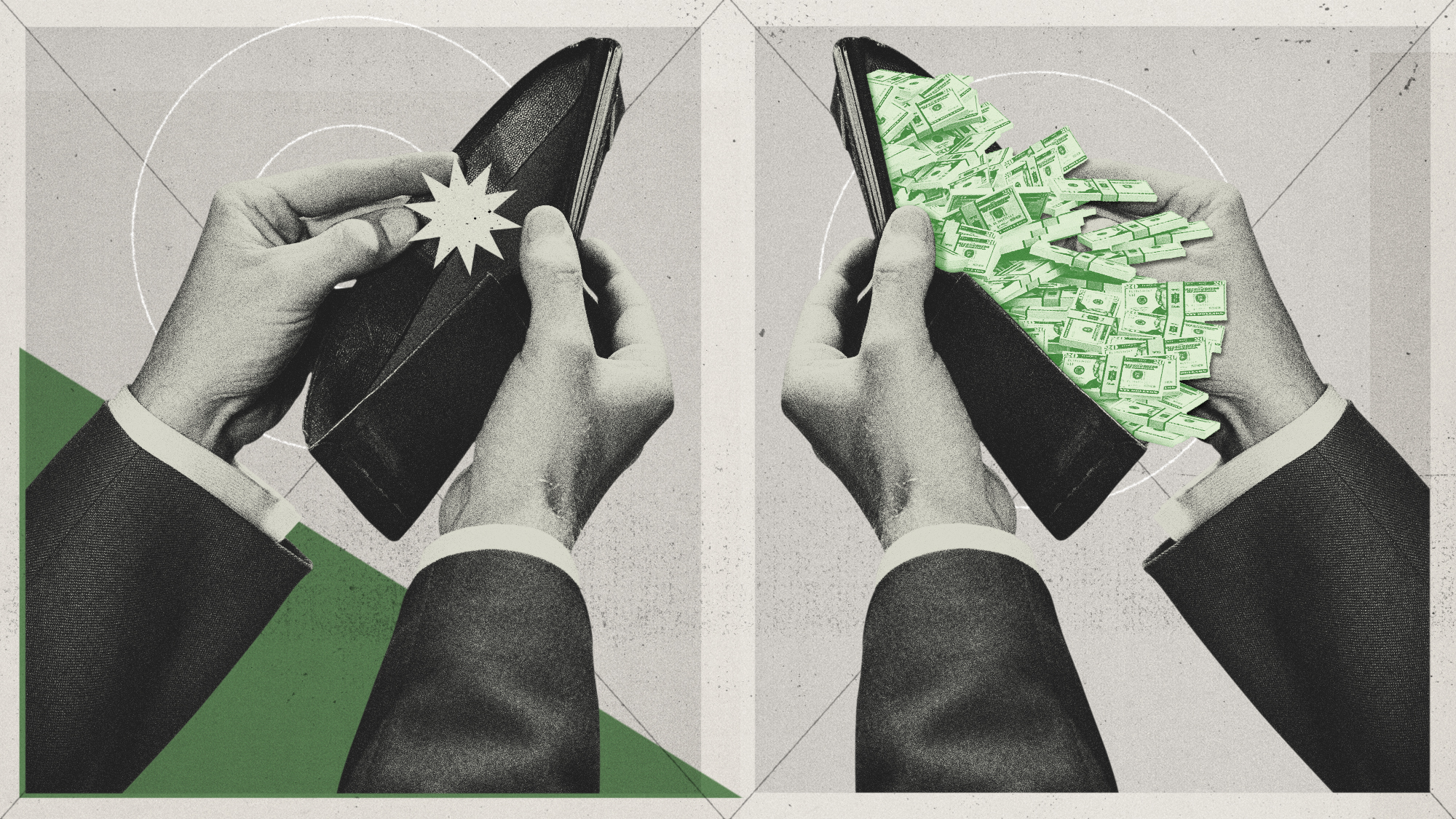Money dysmorphia: why people think they're poorer than they are
The young are more likely to have distorted perceptions of their finances driven, in part, by social media

A free daily email with the biggest news stories of the day – and the best features from TheWeek.com
You are now subscribed
Your newsletter sign-up was successful
Most people experience money worries at some point in their life, but money dysmorphia is "a different ball game" altogether, said CNBC.
A "sibling" of the term "body dysmorphia", where people look in the mirror and don't see "what's really there", money dysmorphia is a "mind-bending split-screen view of reality", said The New York Times. Many people, especially the young, are "plagued by pangs of economic self-doubt" and anxiety that they "can't keep up with the Joneses (and what the Joneses are posting on Instagram)".
Blind spots
Known scientifically as the objective-subjective wealth relationship, researchers have found that people are much more likely to underestimate their earnings than to overestimate or have a realistic assessment of them. A study from HSBC suggested that most British people typically underestimate their earnings by 30% relative to others.
The Week
Escape your echo chamber. Get the facts behind the news, plus analysis from multiple perspectives.

Sign up for The Week's Free Newsletters
From our morning news briefing to a weekly Good News Newsletter, get the best of The Week delivered directly to your inbox.
From our morning news briefing to a weekly Good News Newsletter, get the best of The Week delivered directly to your inbox.
"More interesting still", wrote Helen Coffey for The Independent, the highest earners "have the biggest blind spot". Nine out of 10 workers on £100,000 or more do not consider themselves "well off", despite the fact that such a salary "immediately puts you in the top 4% of the UK".
Insidious and obsessive
Money dysmorphia is a "relatively new concept", but many people "recognise the feelings associated with it", said The Times, and Google searches for the term are up 136% in the UK since last year.
Although it's "not a recognised clinical condition", therapists believe that "warped perceptions of money" are "regularly the crux of issues such as anxiety and depression".
The true extent of the phenomenon is only just coming to light. Google searches for the term are up 136% in the UK since last year. In the US, a recent Credit Karma survey found 29% of Americans experience money dysmorphia, with 43% of Gen Z and 41% of millennials reporting distorted perceptions of their finances, compared to just 14% of those aged 59 or above.
Younger people "in particular" often have "unfounded worries" over lack of funds, said the Financial Times, and their "stress" goes beyond "standard concerns" about money and the economy because it's "more distorted, insidious and obsessive".
A free daily email with the biggest news stories of the day – and the best features from TheWeek.com
Stylist said that the "constant tug-of-war" between "financial reality and perception" means some people "overspend", in the belief that they have "more money than they do", while others "become overly frugal", making "drastic cutbacks".
The causes of money dysmorphia
There are many reasons for money dysmorphia, Danielle Desir-Corbett, a personal finance expert and host of "The Thought Card" podcast, told Buzzfeed. These include "past money trauma, societal pressures, economic crisis" and even issues from childhood.
"People have long worried about money and felt that they don't have enough – even when they do," said the news site. But the issue has got worse "in the online age".
Social media and negative headlines about the cost-of-living crisis have been blamed because these can make us feel like we can "either spend like a celebrity" or think that however much we have in the bank is "simply not enough to get by on".
Another factor could be "the level of financial security" that someone "experienced growing up", said Coffey, because if someone's family was "perpetually strapped for cash", they're more likely to have an "innate fear" that all "could be lost in an instant".
How to spot it
A tell-tale sign for those maybe struggling with money dysmorphia is constantly worrying about finances "no matter how much money you have in your bank account", financial therapist Aja Evans, told CNBC.
Other prevalent indicators, said Wealth Management Canada, include: "always feeling at 'rock bottom'" and "on the verge of financial ruin" or "about to go broke" and hoarding money because you "never feel like you have enough". Conversely, "impulsive spending" such as gambling, retail therapy, shopping addiction, or lifestyle creep can also be signs of a distorted relationship with your finances.
How to deal with it
There are four ways to tackle money dysmorphia, said The Times: "track your finances objectively; challenge negative money beliefs or emotions; set realistic financial goals and limit your comparisons to others".
Another technique is to use savings pots, said Stylist, because having "separate savings for different purposes" can "help ease financial anxiety".
An "accountability buddy" could help you develop a healthier relationship with money, said Desir-Corbett. Day-to-day, try to stay mindful: "identify and avoid triggers and distractions" and press unfollow on any social media accounts whipping up "financial insecurities". Listening to educational podcasts or reading books can grow your financial confidence, "especially around vulnerable areas".
"Finding a balance is key," said Dasha Kennedy, a financial wellness board member at National Debt Relief. "Understand it's OK to spend on necessities and things that bring joy. Financial caution is good, but not when it harms your well-being."